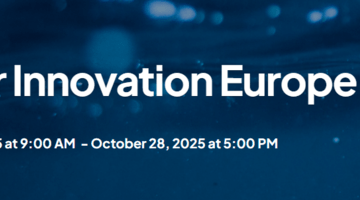
Water Innovation Europe 2025
Copenhagen Denmark
Organised by Water Europe, the Water Innovation Europe 2025 will take place on 27-28 October 2025 in Copenhagen, Denmark. This flagship event convenes sc...
RECREATE is active in four coastal regions across Europe, each facing growing water stress and already experienced in applying Alternative Water Resources (AWR). These Case Studies, located in North Holland (The Netherlands), Kalundborg (Denmark), Costa Brava (Spain) and Syros (Greece), provide real-world testing grounds to advance water reuse, desalination, rainwater harvesting and other innovative solutions.
While all four regions have a background in AWR use, RECREATE is helping them go further, developing integrated strategies, engaging stakeholders and demonstrating scalable approaches for climate-resilient water management.
RECREATE aims to improve the resilience of water supplies and protect natural water resources by supporting the inclusion of AWR in regional and local water management planning. The project also works to build awareness, acceptance and trust in the essential role of AWR in adapting to climate change.
With four case studies located in different biogeographical regions – North Holland (The Netherlands), Kalundborg (Denmark), Syros-South Aegean (Greece) and Costa Brava (Spain) – RECREATE addresses a wide range of environmental and governance contexts. These sites explicitly consider human health risks, local regulatory, cultural and socio-economic conditions and a variety of climate stress scenarios.
To support evidence-based decision-making, RECREATE is developing an open access knowledge repository on the cost-efficiency, environmental and health impacts of various AWR strategies. This resource will form a central part of a Digital Decision Support Framework, which – alongside climate impact projections, local adaptation strategies and a decision matrix – will be used to co-create adaptive water management pathways.
RECREATE is shaping the future of water resource management by combining local innovation, stakeholder engagement and knowledge sharing. At its core, the project focuses on developing, assessing and demonstrating solutions at the case study level, while also co-creating strategies with local actors and actively disseminating results to support broader adoption.
Some of RECREATE's key expected outcomes include:
Together, these elements provide a strong foundation for more resilient, efficient and inclusive water systems.